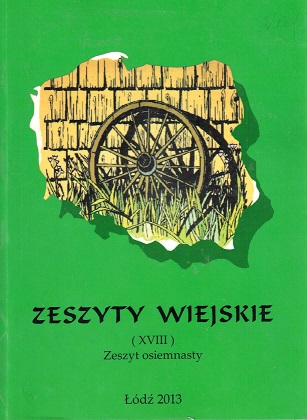Pamięć i zapomnienie jako formy kształtujące tożsamość na przykładzie Żuław Gdańskich
DOI:
https://doi.org/10.18778/1506-6541.18.13Abstrakt
Memory has one of the essential roles in the functioning of the human mind. It has the ability to store and playback a previously acquired information. At any time in the light of the experience gained so far and known to us knowledge we try to explain various kinds of data received by us. The past itself does not change, what changes is our perception of it and the way we remembered it. We can even say that the entire knowledge about the world and of ourselves is based on memory.
What we remember, the way we remember things is the result of our work on our own identity, shaped by our biography. On one hand, we see ourselves through the descriptions of other people on our subject, on the other hand, on the basis of our own thoughts about ourselves. The past appears to be here as a constitutive element for the future. How we see ourselves and how we see other people is often the result of our experience. Remembered and forgotten items our experiences shape the image of what was, is and will be.
Social memory is an essential element for structuring the experiences from the past and arranges them in a coherent picture, whose value is not in terms of truth or the recognition of false, but the current interpretation of the past reality for the creative needs of individuals and groups.
Each person is shaped by the society he lives in, formed by important memories and the past of the whole population. That means that the individual are the one who shape memory, which affects the perception of what was, implying what will be. Interpretation of the past is a dynamic process in accordance with the continuous changes allowing for creative intervention by any person. Transmitted contents are distorted being selected from the course of the transmission of these elements of the past and the selection of learned information by contemporaries. Memory is an attribute of man with a significant impact on the perception of the world, by remembered events.
Pobrania
Pobrania
Opublikowane
Jak cytować
Numer
Dział
Licencja

Utwór dostępny jest na licencji Creative Commons Uznanie autorstwa – Użycie niekomercyjne – Bez utworów zależnych 4.0 Międzynarodowe.











